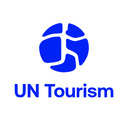World Tourism Organization and FC Barcelona sign collaboration agreement
The World Tourism Organization (UNWTO) and FC Barcelona signed an agreement on Saturday, opening the path to collaboration between the two organizations in the areas of tourism and sports. The agreement was signed by UNWTO Secretary-General Zurab Pololikashvili and the President of FC Barcelona, Josep Maria Bartomeu.
The agreement sets the framework for both entities to define areas of common interest in tourism and sport, which will allow the definition of joint projects in this field.
"The relationship between tourism and sports is very significant and we are very pleased to begin this important collaboration. I am sure that this agreement will open up new opportunities to maximize the joint contribution of tourism and sport to socioeconomic development and the competitiveness of destinations", said Zurab Pololikashvili.
FC Barcelona is a multi-sports club with international projection thanks mainly to its football team, which enjoys a large following worldwide. In addition, it has a global presence in 12 other sports disciplines, including basketball, handball, athletics and field hockey, among others.
The signing of the agreement coincided with the appointment of Lionel Messi as UNWTO Ambassador for Responsible Tourism.
About UN Tourism
The World Tourism Organization (UN Tourism) is the United Nations agency responsible for the promotion of responsible, sustainable and universally accessible tourism.
As the leading international organization in the field of tourism, UN Tourism promotes tourism as a driver of economic growth, inclusive development and environmental sustainability and offers leadership and support to the sector in advancing knowledge and tourism policies worldwide.
Our Priorities
Mainstreaming tourism in the global agenda: Advocating the value of tourism as a driver of socio-economic growth and development, its inclusion as a priority in national and international policies and the need to create a level playing field for the sector to develop and prosper.
Promoting sustainable tourism development: Supporting sustainable tourism policies and practices: policies which make optimal use of environmental resources, respect the socio-cultural authenticity of host communities and provide socio-economic benefits for all.
Fostering knowledge, education and capacity building: Supporting countries to assess and address their needs in education and training, as well as providing networks for knowledge creation and exchange.
Improving tourism competitiveness: Improving UN Tourism Members' competitiveness through knowledge creation and exchange, human resources development and the promotion of excellence in areas such as policy planning, statistics and market trends, sustainable tourism development, marketing and promotion, product development and risk and crisis management.
Advancing tourism's contribution to poverty reduction and development: Maximizing the contribution of tourism to poverty reduction and achieving the SDGs by making tourism work as a tool for development and promoting the inclusion of tourism in the development agenda.
Building partnerships: Engaging with the private sector, regional and local tourism organizations, academia and research institutions, civil society and the UN system to build a more sustainable, responsible and competitive tourism sector.
Our Structure
Members: An intergovernmental organization, UN Tourism has 160 Member States, 6 Associate Members, 2 Observers and over 500 Affiliate Members.
Organs: The General Assembly is the supreme organ of the Organization. The Executive Council take all measures, in consultation with the Secretary-General, for the implementation of the decisions and recommendations of the General Assembly and reports to the Assembly.
Secretariat: UN Tourism headquarters are based in Madrid, Spain. The Secretariat is led by the Secretary-General and organized into departments covering issues such as sustainability, education, tourism trends and marketing, sustainable development, statistics and the Tourism Satellite Account (TSA), destination management, ethics and risk and crisis management. The Technical Cooperation and Silk Road Department carries out development projects in over 100 countries worldwide, while the Regional Departments for Africa, the Americas, Asia and the Pacific, Europe and the Middle East serve as the link between UN Tourism and its 160 Member States. The Affiliate Members Department represents UN Tourism's 500 plus Affiliate members.
